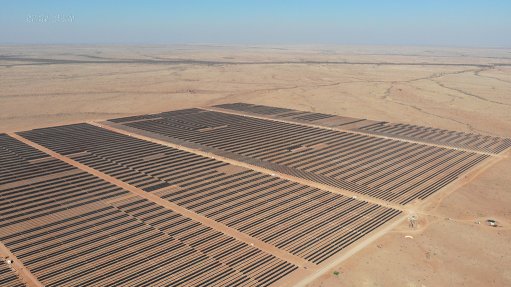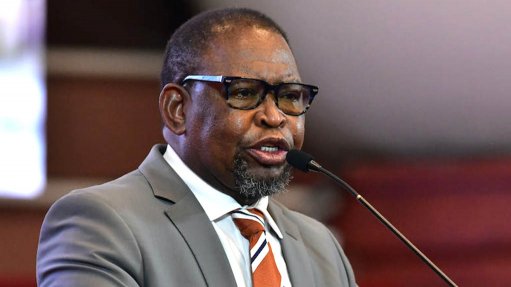Businesses struggling to embed sustainability into core strategies
Local and global C-level business leaders (CxOs) are increasingly concerned about climate change and see the world at a tipping point to act.
Businesses are, however, struggling to fully embed sustainability into their core business strategies, operations, and cultures, advisory and professional services multinational Deloitte's '2022 CxO Sustainability Report: The Disconnect Between Ambition and Impact' shows.
Most, or 89%, of company leaders agree that there is a climate crisis and 63% say their organisations are very concerned.
“The battle against climate change is not a choice; it is billions of choices. No action is insignificant, but certain activities and decisions move the needle more than others, and such bolder actions by business leaders are needed now while there is still time to limit the damage. It’s time to prove we’re up to the challenge,” says Deloitte Global CEO Punit Renjen.
Almost all respondents, 98% in South Africa and 97% globally, say they have been impacted by climate change over the past year. This ranges from employee health issues, including mental health with 52% of South African executives citing this against 37% globally.
Further, 50% of South African respondents say they had to modify processes, such as manufacturing, against 40% globally.
Companies say they feel the most pressure from shareholders to act on climate change, followed by consumers, clients or customers, and board members and management.
However, the report further found that, while companies are acting, there is a disconnect between ambition, action and impacts.
While all sustainability actions are important, Deloitte’s analysis has identified five actions that, especially when taken together, demonstrate a deeper understanding of the business benefits of sustainability, including developing new, climate-friendly products or services and requiring suppliers and business partners to meet specific sustainability criteria, the company says.
Further, updating or relocating facilities to make them more resistant to climate impacts, incorporating climate considerations into lobbying and political donations and tying senior leader compensation to sustainability performance are the other three effective actions that can facilitate and secure business benefits of sustainability, Deloitte says.
“However, more than one-third of organisations surveyed have implemented only one of these actions. While concern for the environment and optimism for change both remain strong, organisations will increasingly need to consider taking more decisive action to limit the worst impacts of climate change,” the report says.
Additionally, CxOs chose brand recognition and reputation, customer satisfaction and employee morale and well-being as three of the four top benefits of their companies’ sustainability efforts, suggesting many CxOs see climate actions as beneficial to their relationships with their stakeholders.
Meanwhile, the lowest-ranked benefits, including revenue from both longstanding and new business, asset values, cost of investment and operating margins, suggest that CxOs continue to struggle with the short-term costs of transitioning to a low-carbon future.
“Not all businesses are at the same stage in their climate journeys, but all companies will soon need to move from why to how with their own customised approach,” says Renjen.
“These actions are important markers of leadership, as they require having a mindset that sees the risks of inaction and the opportunity of sustainability, a culture that embeds climate directly into business strategy, buy-in from senior leaders, and the ability to influence third parties, including business partners, government and regulators,” he highlights.
Meanwhile, two-thirds of CxOs say, however, that their organisations are using more sustainable materials and increasing the efficiency of energy use, more than half have adopted energy-efficient or climate-friendly machinery, technologies and equipment, and a majority are intentionally reducing air travel and training employees on their climate actions and impact.
“Climate change is one of the biggest challenges of our time and Africa is one of the most adversely affected regions. It is heartening to see that our executives have a heightened sense of urgency about the climate crisis,” adds Deloitte Africa managing partner for responsible business and public policy Anne Muraya.
Additionally, South African executives feel pressure to act on climate change more than their global peers, with pressure coming from a range of stakeholders, including shareholders, customers, boards, governments and regulators, civil society, as well as competitors and employees.
South African executives have been found to be ahead of most of their global peers on almost all aspects of climate change, including the need to act, as well as the role of government. Of the South African executives, 77% say their organisations are concerned about climate change compared to 63% globally.
Further, 54% of executives expect climate change to have a very high impact on their company strategy over the next three years, while 44% expect it to have mild impact and 2% say they expect it to have little or no impact.
“When it comes to acting against climate change, South Africa is ahead of the global average by more than 10% in some cases,” Muraya points out.
For example, when it comes to the use of sustainable materials, such as recycled products, 79% of South African companies are doing this, compared to 67% for the global average. Additionally, 75% of South African respondents say their companies have increased the efficiency of energy use, compared to 66% for their peers globally.
While 60% of South African respondents say their companies have purchased insurance against extreme weather risks, only 46% globally say they have done so.
South Africa also ranks higher than the global average on steps that are considered harder to implement, such as requiring suppliers and business partners to meet specific sustainability criteria, at 51% against 46% globally, and updating or relocating facilities to make them more resilient to climate impact, at 53% against 44% globally, the Deloitte report says.
Comments
Announcements
What's On
Subscribe to improve your user experience...
Option 1 (equivalent of R125 a month):
Receive a weekly copy of Creamer Media's Engineering News & Mining Weekly magazine
(print copy for those in South Africa and e-magazine for those outside of South Africa)
Receive daily email newsletters
Access to full search results
Access archive of magazine back copies
Access to Projects in Progress
Access to ONE Research Report of your choice in PDF format
Option 2 (equivalent of R375 a month):
All benefits from Option 1
PLUS
Access to Creamer Media's Research Channel Africa for ALL Research Reports, in PDF format, on various industrial and mining sectors
including Electricity; Water; Energy Transition; Hydrogen; Roads, Rail and Ports; Coal; Gold; Platinum; Battery Metals; etc.
Already a subscriber?
Forgotten your password?
Receive weekly copy of Creamer Media's Engineering News & Mining Weekly magazine (print copy for those in South Africa and e-magazine for those outside of South Africa)
➕
Recieve daily email newsletters
➕
Access to full search results
➕
Access archive of magazine back copies
➕
Access to Projects in Progress
➕
Access to ONE Research Report of your choice in PDF format
RESEARCH CHANNEL AFRICA
R4500 (equivalent of R375 a month)
SUBSCRIBEAll benefits from Option 1
➕
Access to Creamer Media's Research Channel Africa for ALL Research Reports on various industrial and mining sectors, in PDF format, including on:
Electricity
➕
Water
➕
Energy Transition
➕
Hydrogen
➕
Roads, Rail and Ports
➕
Coal
➕
Gold
➕
Platinum
➕
Battery Metals
➕
etc.
Receive all benefits from Option 1 or Option 2 delivered to numerous people at your company
➕
Multiple User names and Passwords for simultaneous log-ins
➕
Intranet integration access to all in your organisation


















